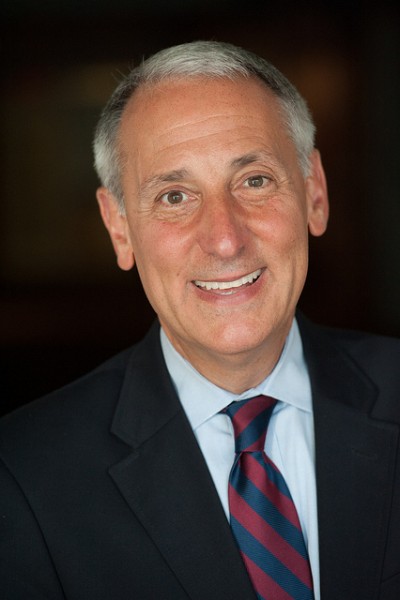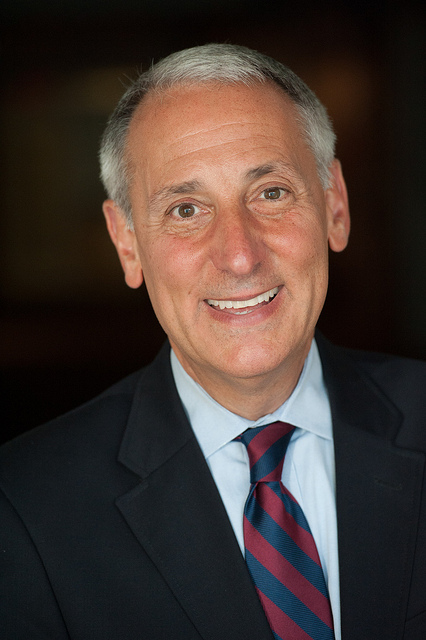
This has, possibly until now, been the academic year of Hillel shooting itself in the foot. Though its roots go back much further, Hillel’s troubles began in December, when then-new Hillel President and CEO Eric Fingerhut published an op-ed in the Jewish Week with AIPAC’s Jonathan Kessler announcing their intention to work together on college campuses “to expand support for Israel on campus.” Their PR situation worsened the following month when Swarthmore Hillel became the first affiliated institution to declare its alliance with the Open Hillel movement and publicly reject Hillel’s Israel Guidelines and Mr. Fingerhut responded with repeated statements making his no-compromise position clear. Though he received much support for his hard-line stance, he also caused a great many students who love Israel, Judaism, and their Jewish identities to no longer feel welcome at their campus Hillels. At around the same time, more controversy came their way when UC Santa Barbara Hillel banned Jewish educator David Harris-Gershon from speaking at a public forum in their building because he said boycotting Israel is a legitimate means of non-violent protest.
That month also brought the first signs of change, however, when a Hillel representative told the New York Times that J Street was absolutely welcome under its tent and Mr. Fingerhut first indicated that a review of Hillel’s Israel policy was necessary during a talk at UCLA, though it led to no official action at the time.
In February and March, Vassar and Wesleyan Hillels declared themselves Open, students at Boston University Hillel formed the “Safe Hillel” movement, and a screening of the anti-J Street film The J Street Challenge was co-sponsored by Hillel of Greater Philadelphia over the protestations of Penn’s J Street U chapter—which had felt welcomed at Hillel prior to this. Through it all, Hillel International had no official response. The institutional silence was finally broken in April when Hillel’s newly-promoted Vice President for Social Entrepreneurship, Sheila Katz, announced at the J Street U National Town Hall in Baltimore that a diverse student cabinet would be formed to review Hillel’s Standards of Partnership on Israel, and the announcement was subsequently released publicly via Twitter. That same week, Boston University’s J Street U chapter’s bid to come under the auspices of BU Hillel was rejected, and Hillel International said and did nothing.
At last, in May, Hillel officially announced that it will create an “Israel Strategy Committee” as well as a Student Cabinet. According to Open Hillel’s press release, “The Israel Strategy Committee will convene students and Hillel professionals to make recommendations on improving programing on Israel-Palestine, while the Student Cabinet will represent general student concerns in Hillel International.” The press release further calls upon Hillel International to ensure that the Student Cabinet is democratically elected and fully reflects the diversity of student opinion on Israel. Though New Voices fully endorses this view, we also feel it necessary to add a caveat.
In our review of Hillel’s Israel controversies over the past academic year, the disconnect between policies and views set forth by Hillel International in Washington, D.C. and those of individual Hillels becomes clear. As it is, Hillel selectively enforces Standards of Partnership many students don’t like, and if the Student Cabinet and Israel Strategy Committee turn out to be as representative and as fair as they ought to be, it makes sense that Hillel would try to make sure the resolutions they come up with are more consistently enforced. This new strategy threatens to make Hillel run in an even more top-down fashion, and that is something we cannot support.
It is a law of nature that when new rules are enforced on campus, some students will disagree with them and rebel. Thus, assuming the new Standards are more liberal than the current ones, it seems likely Safe Hillel will not recognize them and fight against them, making Safe Hillel the new Open Hillel, and possibly Open Hillel the new Safe Hillel, in the same way that once Obama was sworn in, Fox News suddenly no longer felt supporting the President during a time of war was such a primary value, and MSNBC suddenly believed in giving the President the benefit of the doubt. Though I think the daily reality of Jewish life on campus will change very little as a result of these changes, they will nonetheless inevitably result in no fewer dissatisfied students as there are now; the revolutionary new Hillel makes a total 360.
I have argued before that Hillel should be even more decentralized than it currently is, allowing each branch to invite speakers and establish policies as it sees fit without an official policy about who is and isn’t allowed coming from the top. I really hope these innovations work and that they result in more Jewish students finding a home at Hillel, that due to these changes, the organization will become even more of a safe space where even more students than ever before will feel comfortable exploring and engaging with Jewish traditions, argument for the sake of Heaven among them. I only worry that as long as there are Standards of Partnership coming from any place other than a single campus Hillel, all we’ll be left with is more conversations about the kinds of conversations we can have and fewer actual conversations about things that matter. And that would be a tragedy.
Derek M. Kwait graduated from the University of Pittsburgh and is editor in chief of New Voices.

